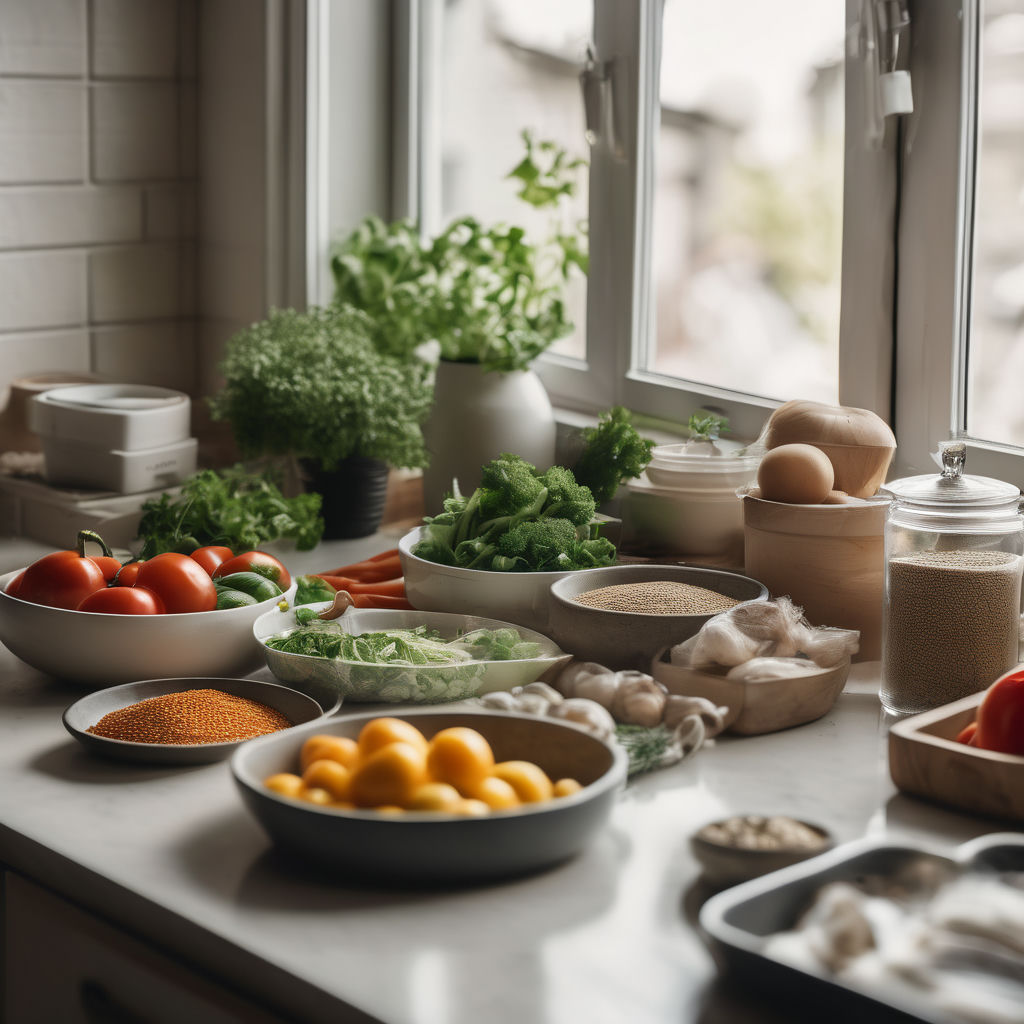
The Future of Meal Planning: How AI Takes the Stress Out of Weekly Prep
Planning meals for the week doesn't have to feel like a second job. Between deciding what to cook, checking your pantry, creating shopping lists, and adapting recipes to dietary preferences, the process can quickly become overwhelming. This is where AI for meal planning steps in—not as a gimmick, but as a practical tool that addresses real frustrations in the kitchen.
The Real Challenges of Weekly Meal Planning
Let's be honest: meal planning takes time and mental energy. You're juggling multiple considerations—nutritional balance, family preferences, ingredient availability, and budget constraints. Add in the guilt of wasted groceries or the pressure to eat healthier, and it's easy to see why many people skip planning altogether and resort to last-minute takeout or repetitive meals.
Traditional meal planning also creates friction between steps. You plan meals, then hunt through your kitchen for ingredients, then navigate the grocery store with a scattered list. Each disconnect is an opportunity for mistakes, forgotten items, or impulse purchases.
How AI Changes the Game
Artificial intelligence handles the coordination between these steps seamlessly. A smart meal planning platform connects your recipe preferences, dietary requirements, available ingredients, and shopping patterns into one cohesive system.
Instead of browsing recipe sites for 30 minutes, AI learns your cooking preferences and suggests meals that match both your taste and what's actually in your pantry. It can identify that you have chicken, bell peppers, and rice, then propose three recipes you'd actually enjoy making—complete with nutritional breakdowns.
The shopping list generation happens automatically, eliminating the tedious task of combing through recipes to extract ingredients. No more arriving home to realize you forgot milk, and no more buying duplicates of items you already have.
Saving Time Without Sacrificing Quality
Time savings with AI meal planning are genuine. Research shows the average person spends 8+ hours monthly on meal planning and grocery shopping. When these tasks become streamlined, you reclaim significant time—time you can spend actually cooking or enjoying meals with family rather than managing the logistics.
But it's not just about speed; it's about consistency. An AI system can ensure you're hitting nutritional targets across the week, incorporating variety so you're not eating the same five recipes on rotation, and accommodating dietary restrictions without requiring you to manually cross-reference every ingredient list.
Personalization That Learns From You
Unlike static meal planning templates, AI systems improve as you use them. They track which recipes you actually make versus which you skip, learn your cooking skill level, and remember seasonal preferences. Over time, suggestions become eerily good at predicting what you'll enjoy.
This personalization extends to accommodating lifestyle changes. Whether you're transitioning to vegetarian meals, managing food allergies, reducing processed foods, or prepping for fitness goals, AI adjusts recommendations accordingly rather than forcing you to start from scratch.
The Practical Benefits Beyond Time
Less decision fatigue means better eating habits. When healthy meal options are already selected and ingredients are on hand, you're far more likely to cook at home instead of ordering delivery. This naturally improves nutrition without requiring willpower.
Reduced food waste is another tangible benefit. By planning meals around ingredients you already have and creating accurate shopping lists, you're buying with intention. Studies show this approach can cut household food waste by 30-40%.
Budget management improves too. When you know exactly what you're buying and why, impulse purchases decrease and cost per meal becomes more predictable.
Getting Started With Smarter Planning
The best approach is choosing a platform that goes beyond just suggesting recipes. Look for one that integrates pantry management, so you can track what you have on hand, and creates shopping lists automatically. Some platforms even help you import recipes from anywhere—web links, photos, or social media videos—so you're not limited to a pre-built recipe library.
The transition usually takes just a few minutes of setup. You'll input dietary preferences, family size, cooking ability, and favorite cuisines. From there, the system handles the heavy lifting, learning and adapting as you use it.
Making Meal Prep Less of a Chore
Weekly meal prep becomes less daunting when the planning phase is already complete. You're not standing in your kitchen wondering what to cook while ingredients sit in the fridge. Everything is decided, ingredients are prepped for success, and you can focus on the actual cooking—which is often the part people enjoy.
The future of meal planning isn't about removing the human element. It's about removing the friction, so you can focus on what matters: preparing food you actually want to eat, without the stress and wasted time.